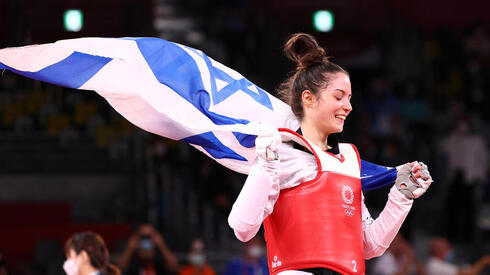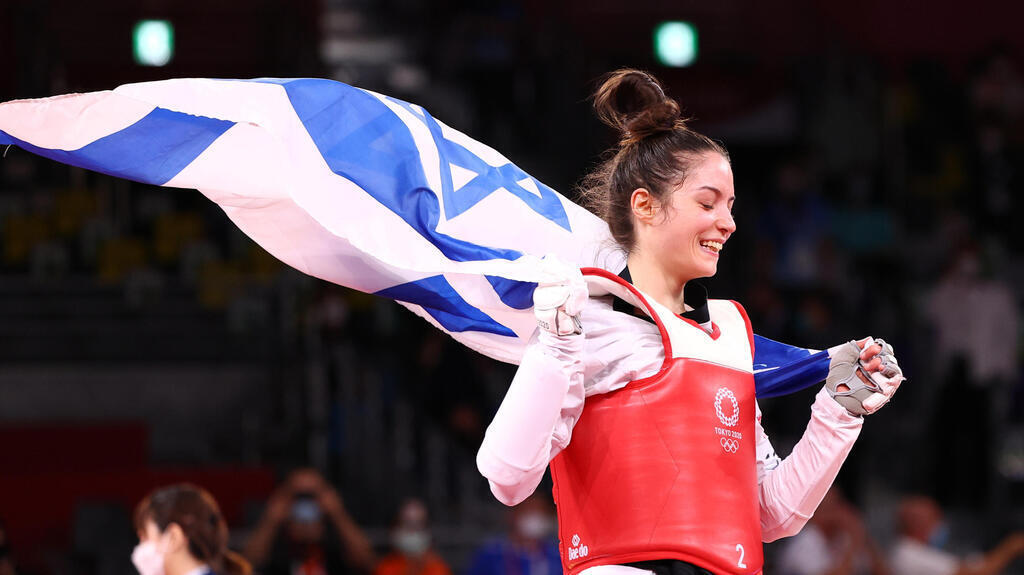
Faster, stronger, more equal: Female athletes in Paris will make history
An equal number of male and female competitors, the broadcast of women's competitions during peak viewing hours, and the introduction of new disciplines will make the Paris Olympic Games in July the most equal ever. If successful, this move will have significance far beyond sports: creating role models, integrating skills into the workforce, and promoting leadership.
Those watching the final broadcast of the Olympic Games opening in Paris in July might be surprised by the new schedule. The last evening's glory will be claimed by the women's marathon, instead of the traditionally celebrated men's marathon. This change is just one among many that will make the Paris 2024 Olympics the most egalitarian ever: 10,500 athletes will compete, with women making up 50% of the participants. New disciplines have been added to increase equality, with men competing in new fields, and the broadcasting schedule will ensure that top female athletes receive prominent coverage.
Historically, the Olympic Games have not excelled in gender equality. In 1896, women were forbidden to participate. By 1900, women were allowed to compete in a few "feminine" disciplines such as tennis, making up only 2.2% of the athletes. It wasn't until 1952 that women constituted more than 10% of participants, with significant increases beginning in the 2000s. At the Tokyo 2020 Olympics, women made up just under 48% of the athletes.
In Paris, female athletes will have more opportunities than ever to win medals. The schedule includes 152 women's events, 157 men's events, and 20 mixed events. The competitions will also undergo changes: men can now compete in previously exclusive disciplines like artistic swimming. The 35 km walking race previously reserved for men will become a mixed team event, and one weight class has been added for women in boxing. However, equality has not been achieved in all branches; for example, wrestling remains an all-male sport this year.
Yael Arad, chair of the Israeli Olympic Committee and the first Israeli Olympic medalist with a silver medal in judo in Barcelona 1992, says, "There are unique sports with a tendency towards one gender, which is legitimate and logical. The balance will come from parallel disciplines. Most sports are balanced, and the current process allows successful women's sports to grow significantly. Mixed competitions, where women and men from the same country compete together, are a significant achievement. Events like mixed relay swimming, mixed team judo, and mixed 470 sailing have become quite popular and inspiring."
The International Olympic Committee has devised a careful communication plan to highlight women's achievements. Female athletes' competitions will move from morning hours to peak viewing times, giving the public more opportunities to see female athletes on screen and providing the media with more coverage opportunities. For the first time since its inclusion in the Olympic program in 1984, the women's marathon will be held a day after the men's marathon, concluding the athletics program on August 11th before the closing ceremony.
Sports change lives and society
Sports can change lives. The Olympic Committee emphasizes that for girls and boys, sports can promote leadership, teamwork, and self-ability. Gender equality in sports can benefit economies and societies broadly, as found in the 2023 Global Gender Gap Report by the World Economic Forum. It highlighted that closing gender gaps can drive growth, innovation, and resilience, though full equality may take another 131 years at the current rate of progress. Promoting equality can significantly benefit the economy, with a 2020 McKinsey report suggesting that $12 trillion could be added to global GDP by promoting women's equality in all sectors.
"Thomas Bach, chairman of the Olympic Committee, has made gender equality a goal," says Prof. Ronit Kark of Bar-Ilan University, an expert on gender and social leadership. The International Olympic Committee has introduced more equal disciplines, such as skateboarding, surfing, softball, and climbing, to include more women and rejuvenate the competitions. Guidelines for the media aim to prevent sexist coverage, ensuring fair representation of female athletes.
Kark emphasizes that competitive sports develop skills crucial for leadership roles. However, women often lack encouragement and training in sports, learning from societal pressures that competitiveness is not feminine. This affects their progress in various arenas, including management and politics. High visibility of women in the Olympics will challenge these perceptions and inspire change.
Still earning much less
Despite progress, women in sports still face significant challenges. In 2019, only 31% of sports coaches in Europe were women, and women comprised just 40% of sports players. Women athletes earn significantly less than their male counterparts.
Women’s sports also receive less media coverage and sponsorship. In 2021, less than 6% of sports media coverage was devoted to women's sports. Consequently, women's sports have fewer sponsors, with only 7% of sponsorships in Australia directed to women's sports. Male athletes receive $179 million more in sports scholarships each year than female athletes. Institutions spend only 24% of their athletic budgets on women's sports, 16% of recruiting budgets, and 33% of scholarship budgets.
In Israel, about 35 women will participate in the Olympic delegation this year, out of 85 athletes. Without counting the soccer team, the number of women is about half. The Israeli Olympic Committee has been working to create opportunities for women in sports, aiming to bring about change from top to bottom.
"One of the biggest challenges is the low rate of female coaches," says Arad. Coaching often involves a nomadic lifestyle, with many evening trainings and trips abroad, posing complexities for women. In Israel, female athletes comprise only 20% of all athletes, rising to about 27% without counting soccer. Cultural perceptions that sports are for boys make it difficult to change habits and increase the number of female coaches.
Globally, only 13% of coaches were women in the last Olympic Games. The Israeli Olympic Committee has implemented programs to promote career management and personal growth for women in all sports sectors. They have trained about 140 female directors in the field, aiming to increase the number of women in key positions in sports, providing role models and reducing dropout rates.
By addressing these challenges, the Paris 2024 Olympics could mark a significant step towards gender equality in sports and beyond.















